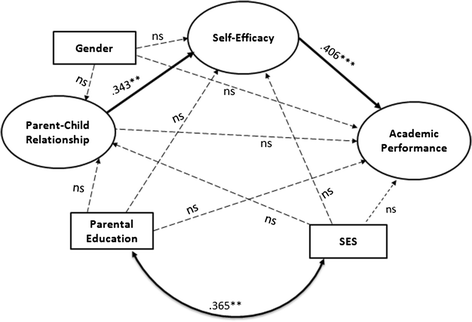

Parent-child communication is essential for a child’s overall development, including their academic success. In the modern education system, with its emphasis on standardized testing and competition, parent-child communication is more important than ever before.
The Impact of Parent-Child Communication in the Modern Education System
Parents can play a key role in helping their children succeed academically by communicating with them regularly about their schoolwork, providing support and encouragement, and helping them to develop effective study habits.
Parent-child communication is essential for a child’s well-being and success in school. When parents and children communicate effectively, children are more likely to feel supported, motivated, and engaged in their learning. They are also more likely to develop healthy self-esteem and coping skills.
In the modern education system, parent-child communication is especially important. Children are facing increasing academic pressure and competition. They are also spending more time on screens and less time interacting with their families. This can make it difficult for parents to stay connected with their children and understand what they are going through.

However, there are a number of things that parents can do to improve communication with their children and support their success in school. This blog post will discuss the impact of parent-child communication on the modern education system and provide tips for parents on how to improve communication with their children.
The Importance of Parent-Child Communication for Academic Success
Parent-child communication is essential for children’s overall development, including their academic success. In the modern education system, where children are under increasing pressure to perform well, strong communication between parents and children is more important than ever.
What is Parent-Child Communication?
Parent-child communication is the process of exchanging information and ideas between parents and children. It can take many forms, including talking, listening, reading together, playing together, and spending time together.
Why is Parent-Child Communication Important for Academic Success?
Parent-child communication has a number of benefits for children’s academic success. It can help children to:
Research has also shown that parent-child communication has a significant impact on student outcomes. For example, a study by the National Parent Teacher Association found that students who have strong relationships with their parents are more likely to:
Another study, by the University of Minnesota, found that students who have regular conversations with their parents about their schoolwork are more likely to perform better on standardized tests.
There is a growing body of research that supports the link between parent-child communication and academic success. For example, a study by the National Parent Teacher Association found that students who had regular conversations with their parents about their schoolwork were more likely to get good grades and graduate from high school.

Another study, published in the journal Child Development, found that children who had close relationships with their parents were more likely to be engaged in school and to perform better academically. The study also found that children who felt supported by their parents were more likely to persevere in the face of challenges and to achieve their academic goals.
How to Improve Parent-Child Communication About Schoolwork
There are a number of things that parents can do to improve their communication with their children about schoolwork. Here are a few tips:
Be a good listener. When your child is talking to you about their schoolwork, really listen to what they have to say. Ask clarifying questions and show that you are interested in their perspective.
The Role of Parent-Child Communication in the Modern Education System
The modern education system is more complex and demanding than ever before. Students are faced with a greater number of academic challenges, and they are also expected to be more engaged in their learning.
Specific Examples of How Parent-Child Communication Can Impact Academic Success
Here are a few specific examples of how parent-child communication can impact academic success:
Parent-child communication is essential for a child’s overall development, including their academic success. In the modern education system, with its emphasis on standardized testing and competition, parent-child communication is more important than ever before. Parents can play a key role in helping their children succeed academically by communicating with them regularly about their schoolwork, providing support and encouragement, and helping them to develop effective study habits.
Parent-child communication is essential for a child’s well-being and success in school. In the modern education system, parent-child communication is especially important. Parents can support their children’s success in school by providing them with emotional support, helping them develop good study habits, and staying informed about their schoolwork.
Parent-child communication is essential for children’s overall development, including their academic success. In the modern education system, where children are under increasing pressure to perform well, strong communication between parents and children is more important than ever.
References
Parent-Child Communication and Academic Success: A Review of the Literature by the University of Minnesota
The Impact of Parent-Child Communication on School Engagement and Academic Achievement by the University of Michigan.
Parent-Child Communication and Children’s Emotional Well-Being by the University of California, Berkeley.
How to Improve Parent-Child Communication by the American Psychological Association.
National Parent Teacher Association: https://www.pta.org/
University of Minnesota: https://innovation.umn.edu/parent-child/
Zero to Three: https://www.zerotothree.org/resource/caregiver-parent-communication-tools/
National Parent Teacher Association (2019). Parent involvement and student achievement: A research review. Retrieved from https://www.pta.org/
Pomerantz, E. M., Ng, F., & Wang, Q. (2008). The role of parent involvement in children’s academic achievement: A meta-analytic review. Educational Psychologist, 43(1), 1-19.
Roopnarine, J. L., & Johnson, J. E. (2005).
National Parent Teacher Association: https://www.pta.org/
University of Minnesota: https://innovation.umn.edu/parent-child/
Zero to Three: https://www.zerotothree.org/resource/caregiver-parent-communication-tools/
Article by Ann Okpomeh
Grade 4 Homeroom Teacher

We are the only international school in Nigeria that offers 100% Ontario Ministry of Education approved Canadian (Ontario) curriculum from Grade 1 through 12.
